Events / SoundS
THE SONIC REAL
24+25 September 2021 | Online Conference
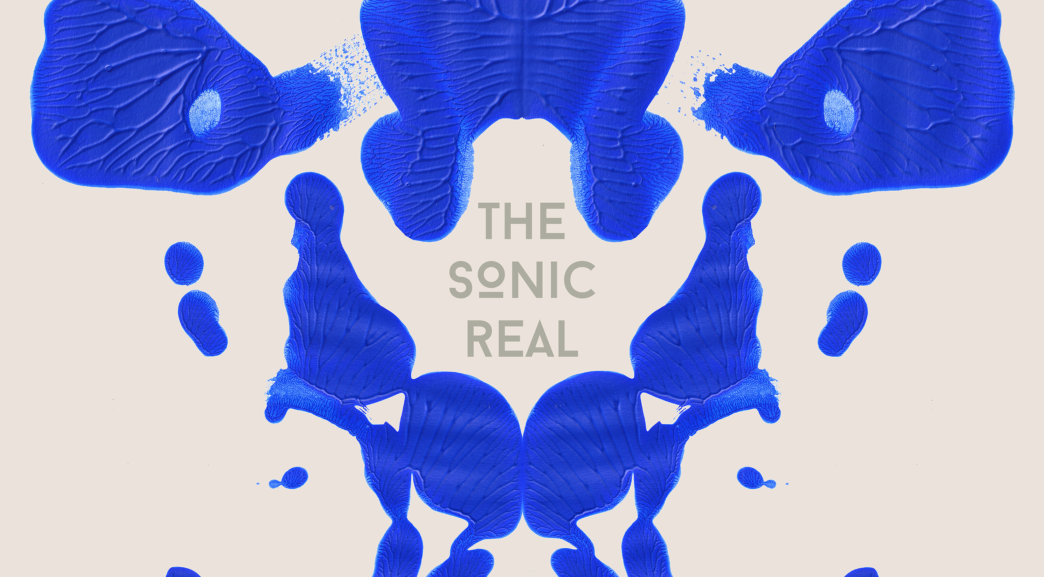
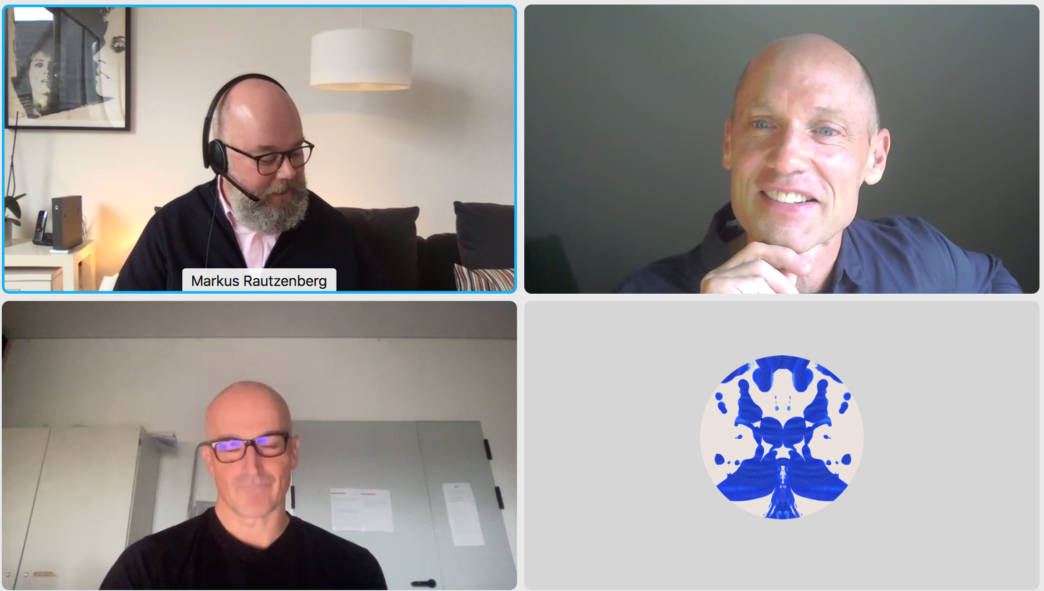
Photos © Kathrin Scheidt
24 Septemer 2021 | 4–7 p.m.
25 Septemer 2021 | 4–9 p.m.
online
The Sonic Real Onlince Conference focuses on recent debates on the real in philosophy and the sonic arts. Over the past decades, artistic positions in experimental music and sound art have been questioning the emphasis on subjectivity while exploring the unnoticed and the inaudible. Ongoing investigation of the thresholds of audibility, sonic media reflexivity and the relationships between sound and space show the increased interest in an aesthetics of the real.
Select theorists from philosophy, media theory and musicology as well as musicians discussed the relationship between the different theoretical notions of the real and the sonic arts.
This D‑A-CH project conference was co-hosted by the Zürcher Hochschule der Künste and the IMR Institute for Music Research and funded by Deutsche Forschungsgemeinschaft and the Swiss National Science Foundation.
24 SEP 2021 | 4PM
Prof. Dr. Christoph Cox und Prof. Dr. Markus Rautzenberg in conversation, moderated by Dr. des. Bernhard Rietbrock
Philosophical Concepts of the Real
This talk focused on philosophical concepts of the real. The starting point traces back to Lacan’s description of the psychological system by means of the Real, the Symbolic, and the Imaginary. Whereas in the arts symbolization and imagination stand for the position of production aesthetics, the Real that according to Lacan eludes symbolization as well as imagination refers mainly to aesthetic experience. According to the theory, the various currents in the arts are distinguished by the Real, with which they set out to come to terms and which is discussed in aesthetic theory as the unutterable which cannot be said, or as the previously inaudible, which, of course, is of particular importance for the sonic real at hand. One of the essential aspects of the discussion between Christoph Cox and Markus Rautzenberg was be the attempt to illuminate the consequences that follow from different interpretations of the real which ultimately lead to different aesthetic conclusions.
Prof. Dr. Christoph Cox
Prof. Dr. Christoph Cox teaches and writes on contemporary European philosophy, cultural theory, and aesthetics. He is the author of Sonic Flux : Sound, Art, and Metaphysics (University of Chicago Press, 2018) and Nietzsche : Naturalism and Interpretation (University of California Press, 1999), and co-editor of Realism Materialism Art (Sternberg, 2015) and Audio Culture : Readings in Modern Music (Continuüm, 2004/2017). The recipient of an Arts Writers Grant from Creative Capital/Warhol Foundation, Cox is editor-at-large at Cabinet magazine. Christoph Cox is currently vice president for Academic Affairs and dean of faculty and professor of philosophy at Hampshire College.
Prof. Dr. Markus Rautzenberg
Prof. Dr. Markus Rautzenberg is a philosopher and media theoretician. His chief areas of research are media theory, theory of images, aesthetics and epistemology. From 2011 to 2014, he headed the DFG-project “Evokation. Zur non-visuellen Macht der Bilder (Evocation. On the non-visual power of images)” at Freie Universität Berlin and has published Markus Rautzenberg : Bild und Spiel. Medien der Ungewissheit, Paderborn 2020 ; Ungründe. Perspektiven prekärer Fundierung with Juliane Schiffers in 2016 and Trial and Error. Szenarien medialen Handelns with Andreas Wolfsteiner in 2014. Since 2016, he has been Professor of Philosophy at the Folkwang University of the Arts in Essen.
Dr. des. Bernhard Rietbrock
Dr. des. Bernhard Rietbrock studied Sound Studies at the University of the Arts in Berlin, where he also received his PhD at the Faculty of Music on the topic of Alvin Lucier’s Reflexive Experimental Aesthetics. He has been a research associate at the Zurich University of the Arts since 2014, where he currently leads the Swiss side of the DACH research project Hearing the Other — On the Aesthetic of the Real in Experimental Music and Sound Art at the Institute for Music Research. In 2016, he founded the Ever Present Orchestra at the ZHdK as part of the research project Reflexive Experimental Aesthetics after Alvin Lucier, with which he has since given concerts worldwide as artistic director together with Alvin Lucier.
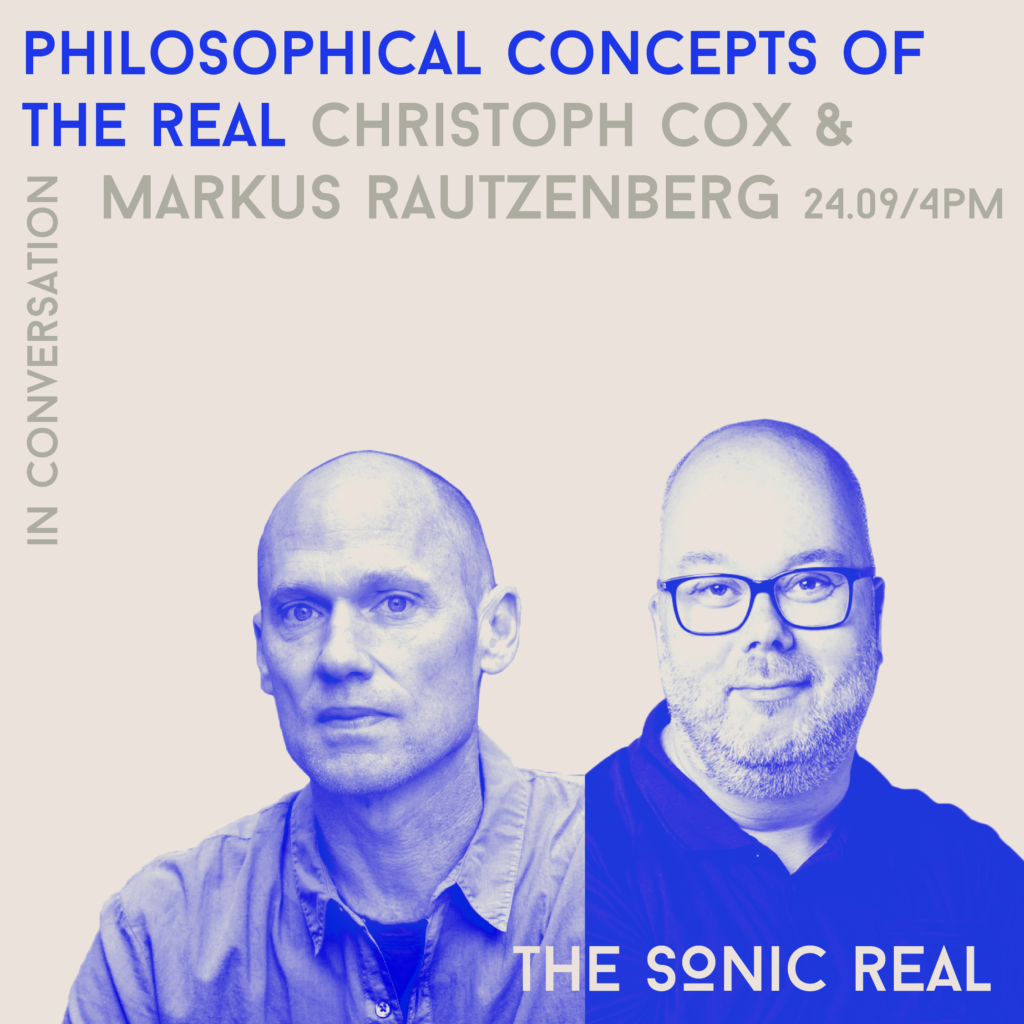
Graphics © Kathrin Scheidt
24 SEP 2021 | 6PM
Volker Straebel and Dr. Luc Doebereiner in conversation, moderated by Jan Thoben
Media Specificity and Sonic Materialism
A materialist understanding of sound addresses not only its corporeal, tangible and affective dimensions as distinct from subjectivist thought and spirit. It also raises questions about sound’s technical mediation. What role does media technology play in conceptualizing the sonic real ? While media and the real bear an intrinsic relationship, the claim that (recorded) sound itself provides direct access to the real has been subjected to critical scrutiny. Volker Straebel and Luc Döbereiner presented perspectives on sonic materialism and on media specific strategies in the sonic arts.
Volker Straebel
Volker Straebel (1969) is a musicologist focusing on experimental and electro-acoustic music, sound art, intermedia, performance and concept art. Between 2015 and 2020, he was director of the Sound Studies Master program at the Berlin University of the Arts, after having served as director of the Electronic Music Studio at the Technical University Berlin. He has realized and performed electronic music and indeterminate works by John Cage and others. His publications include pieces on sound art, media-specific music, John Cage, Alvin Lucier, and Phill Niblock. Since 2021, he serves as the Dean of the Herb Alpert School of Music at the California Institute of the Arts
Luc Döbereiner
Luc Döbereiner is a researcher and composer of instrumental and electronic music from Berlin. He studied at the Institute of Sonology in The Hague and holds a doctoral degree from the University of Music and Performing Arts Graz. His work is concerned with compositional models and explores the relation of materiality, ideality, perception and algorithmic computation of sound.
Jan Thoben
Jan Thoben is a Berlin-based musicologist, art historian and musician. He has been teaching at universities and art universities in Germany and the UK since 2013. He worked as a research and teaching assistant at the Academy of Fine Arts Leipzig from 2015–2017 and at the Mainz Academy of Arts from 2017–2019. Since 2017, he has been the interim program coördinator for the master’s program Sound Studies and Sonic Arts at the Berlin University of the Arts, where he took over as interim program director in 2021.
Jan Thoben has published on experimental music as well as on sound art and media art practices of the early 20th century (https://udk-berlin.academia.edu/JanThoben).
Together with Bernhard Rietbrock and Trevor Saint, he is artistic director of the Ever Present Orchestra (http://everpresentorchestra.net) and has worked on audiovisual transformation in the context of various sound art projects.
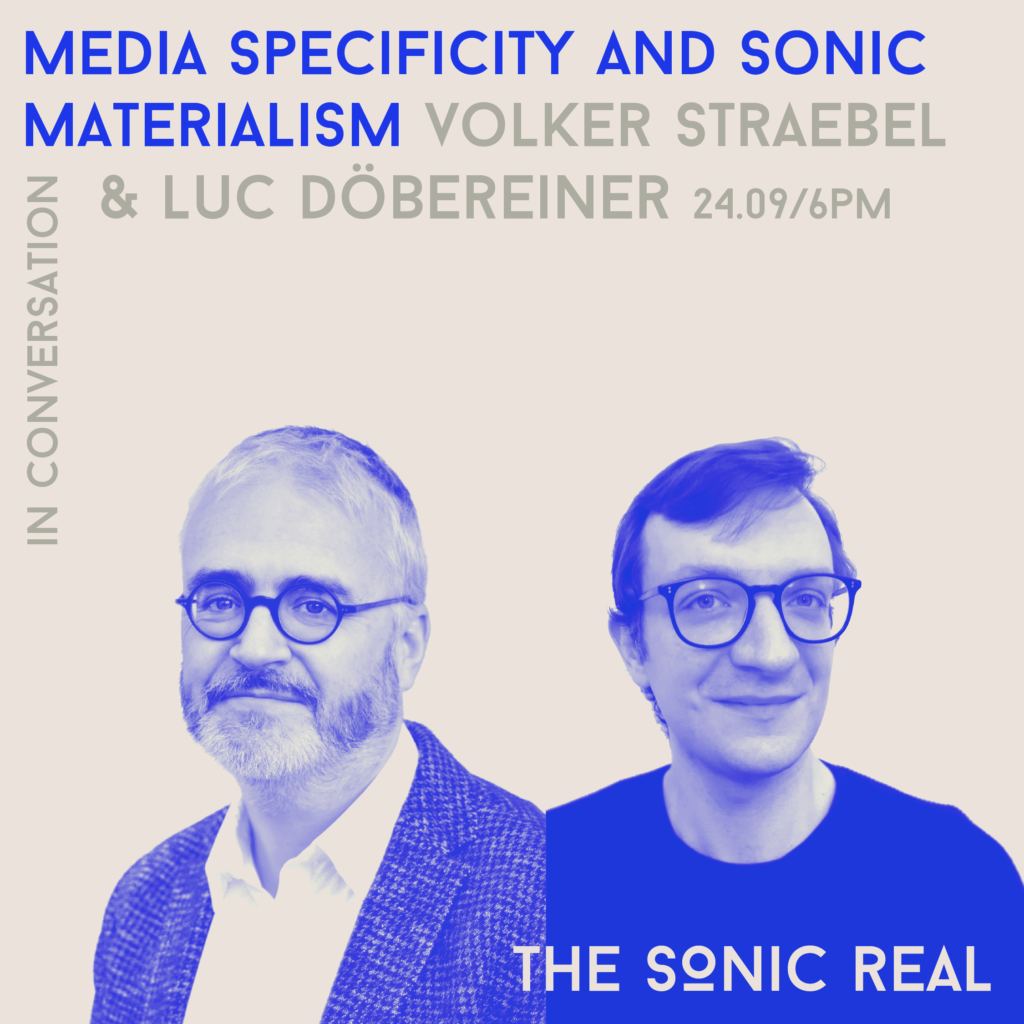
Graphics © Kathrin Scheidt
25 SEP 2021 | 4PM
Prof. Dr. Judith Siegmund and Dr. Rahma Khazam in conversation, moderated by Prof. Dr. Sabine Sanio
Reconsidering the Philosophies of the Real
Works of sonic art frequently use technology to bring to our attention sounds that lie beyond human perception. There are good arguments for seeing in this trend an engagement with contemporary philosophical debates on the real. Drawing on examples of artworks that seek to engage with the non-human dimensions of sound, this talk explored and critically examined the ways in which speculative realist philosophies approach the aesthetics of the real.
Dr. Rahma Khazam
Dr. Rahma Khazam is a researcher in contemporary aesthetics affiliated to Institut ACTE, Sorbonne Paris 1. She studied philosophy and art history and received her Ph.D from the Sorbonne in aesthetics and art theory. Her research ranges from modernism and image theory to speculative realism and new materialism and has been published in edited volumes, academic journals and exhibition catalogues. Recent publications include “Art, Science and the Mutant Object” in Post-Specimen Encounters Between Art, Science and Curating, 2020 and “Son et Image : Face au Réel” in L’écho du Réel, 2021.
Prof. Dr. Judith Siegmund
Since the early 1990s, Prof. Dr. Judith Siegmund has come to the public’s attention particularly in the field of participatory conceptual art with video works as well as multimedia installations and documentary books. Characteristic of her working method is the attempt to capture the everyday discourses of various participants, and to reflect them — aesthetically transformed but unfiltered in terms of content — back into the public space.
Siegmund’s background is in philosophy and the fine arts, and she was Junior Professor for Theory of Design / Aesthetic Theory and Gender Theory at the Berlin University of the Arts from 2011 to 2018. There she founded the three-year research project “Autonomy and Functionalization — An Aesthetic-Cultural-Historical Analysis of Art Terms in the Visual Arts in Berlin from the 1990s to Today”. Prof. Dr. Judith Siegmund has been Professor of Philosophical Aesthetics at the Zurich University of the Arts since March 2021.
Prof. Dr. Sabine Sanio
Prof. Dr. Sabine Sanio, head of the department „Theorie und Geschichte auditiver Kultur“ (theory and history of auditive culture) at the Master’s program Sound Studies, Universität der Künste Berlin ; studied german literature and philosophy ; numerous articles about actual aesthetics, media aesthetics and media history, Sonic Arts, New and Experimental Music and about the relationship between the arts.
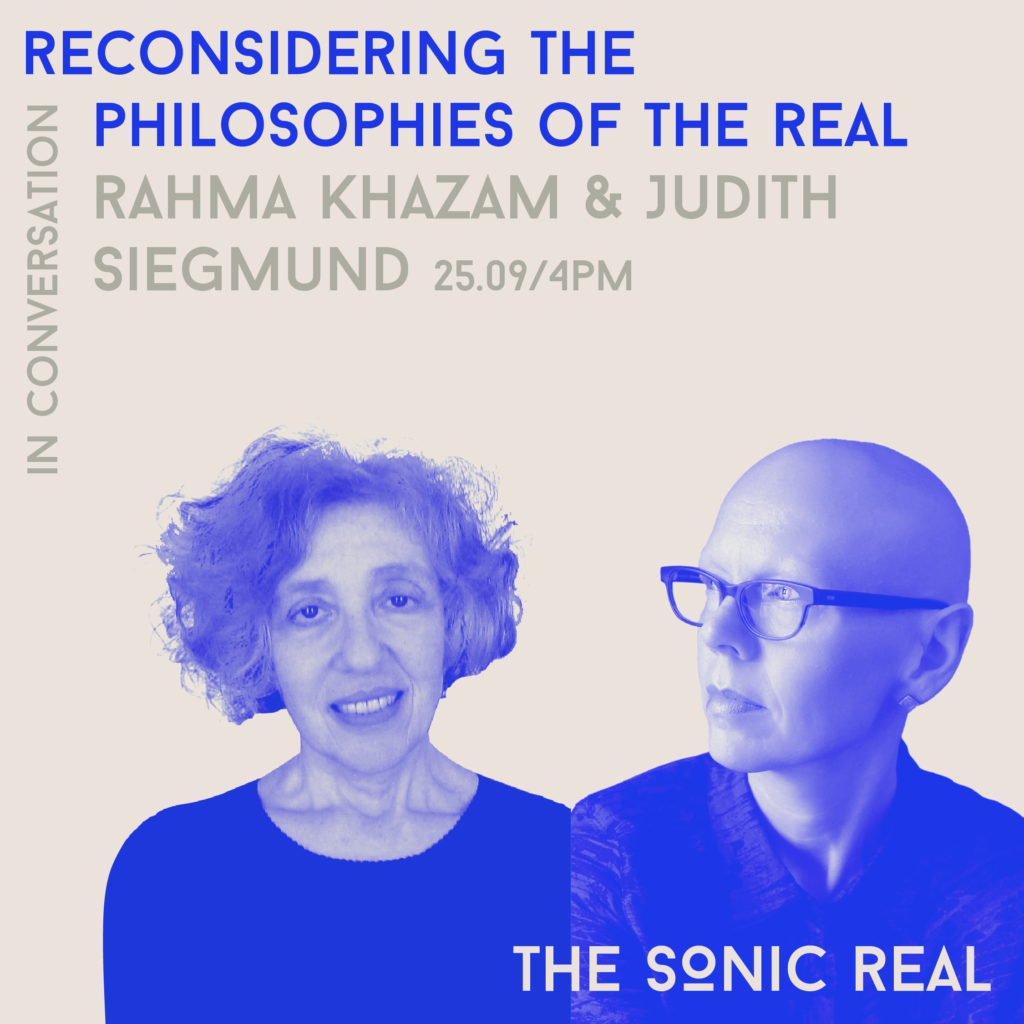
Graphics © Kathrin Scheidt
25 SEP 2021 | 6PM
Charles Curtis und Dr. des. Bernhard Rietbrock in conversation
Performing the Real
Charles Curtis
Cellist Charles Curtis was born in 1960 in Laguna Beach, California. After attending Juilliard he taught part-time at Princeton, performed widely in the solo and chamber music repertoire, and worked with the bands King Missile, Dogbowl and You Suck. From 1989 to 1999 he was principal cellist of the Symphony Orchestra of the North German Radio in Hamburg. His long creative relationships with experimentalists such as La Monte Young and Marian Zazeela, Alvin Lucier, Tashi Wada and Éliane Radigue have brought into being a body of distinctive works modeled on his cello-playing and performing persona. Naldjorlak (2003−2005) by Éliane Radigue is a concert-length solo cello work made collaboratively with Curtis, her first composition for an acoustic instrument and a live performer without amplification or electronic support. Some fifteen compositions by Alvin Lucier have involved Curtis in a central capacity ; and he is the leading interpreter of La Monte Young’s just intonation string music in the world. Curtis is Distinguished Professor of Music at the University of Calfornia, San Diego.
Dr. des. Bernhard Rietbrock
Dr. des. Bernhard Rietbrock studied Sound Studies at the University of the Arts in Berlin, where he also received his PhD at the Faculty of Music on the topic of Alvin Lucier’s Reflexive Experimental Aesthetics. He has been a research associate at the Zurich University of the Arts since 2014, where he currently leads the Swiss side of the DACH research project Hearing the Other — On the Aesthetic of the Real in Experimental Music and Sound Art at the Institute for Music Research. In 2016, he founded the Ever Present Orchestra at the ZHdK as part of the research project Reflexive Experimental Aesthetics after Alvin Lucier, with which he has since given concerts worldwide as artistic director together with Alvin Lucier.
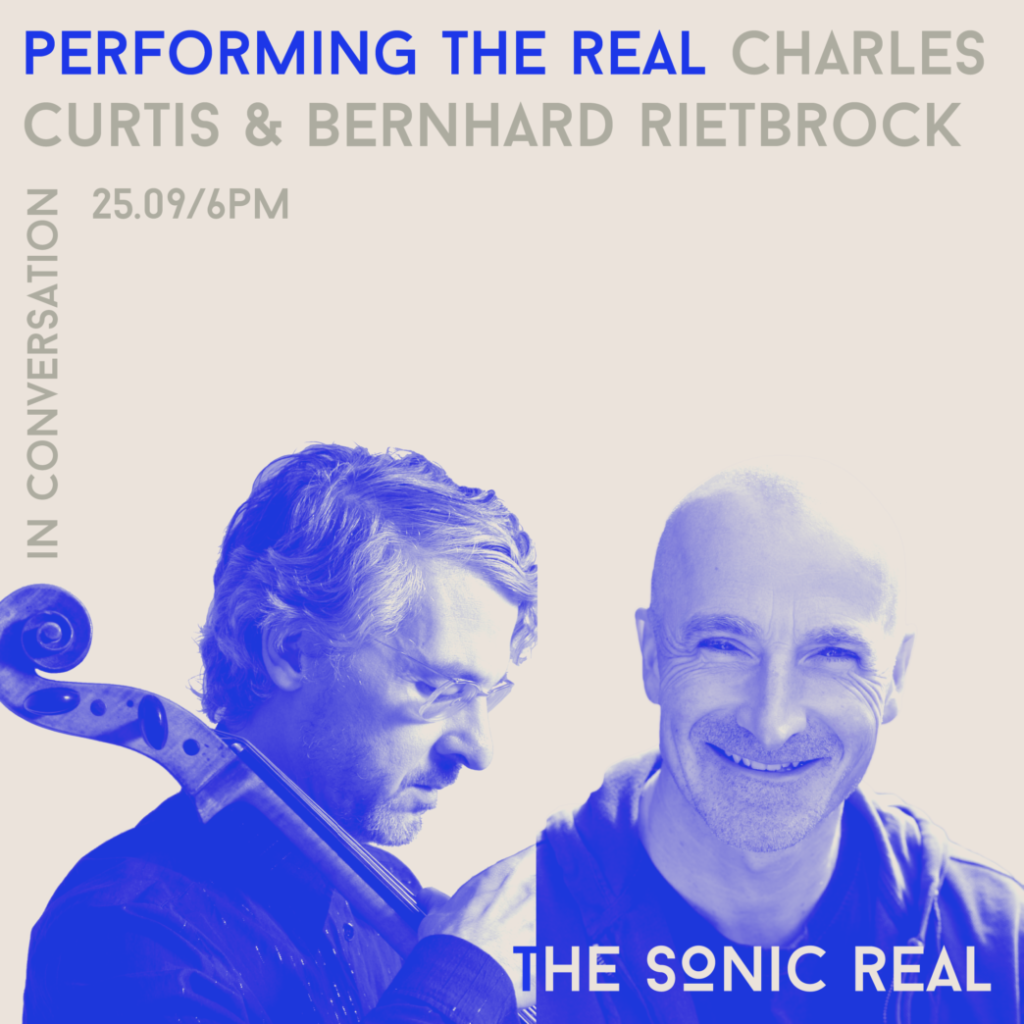
Graphics © Kathrin Scheidt
25 SEP 2021 | 7PM
Concert Charles Curtis (cello)
Charles Curtis
Cellist Charles Curtis was born in 1960 in Laguna Beach, California. After attending Juilliard he taught part-time at Princeton, performed widely in the solo and chamber music repertoire, and worked with the bands King Missile, Dogbowl and You Suck. From 1989 to 1999 he was principal cellist of the Symphony Orchestra of the North German Radio in Hamburg. His long creative relationships with experimentalists such as La Monte Young and Marian Zazeela, Alvin Lucier, Tashi Wada and Éliane Radigue have brought into being a body of distinctive works modeled on his cello-playing and performing persona. Naldjorlak (2003−2005) by Éliane Radigue is a concert-length solo cello work made collaboratively with Curtis, her first composition for an acoustic instrument and a live performer without amplification or electronic support. Some fifteen compositions by Alvin Lucier have involved Curtis in a central capacity ; and he is the leading interpreter of La Monte Young’s just intonation string music in the world. Curtis is Distinguished Professor of Music at the University of Calfornia, San Diego.
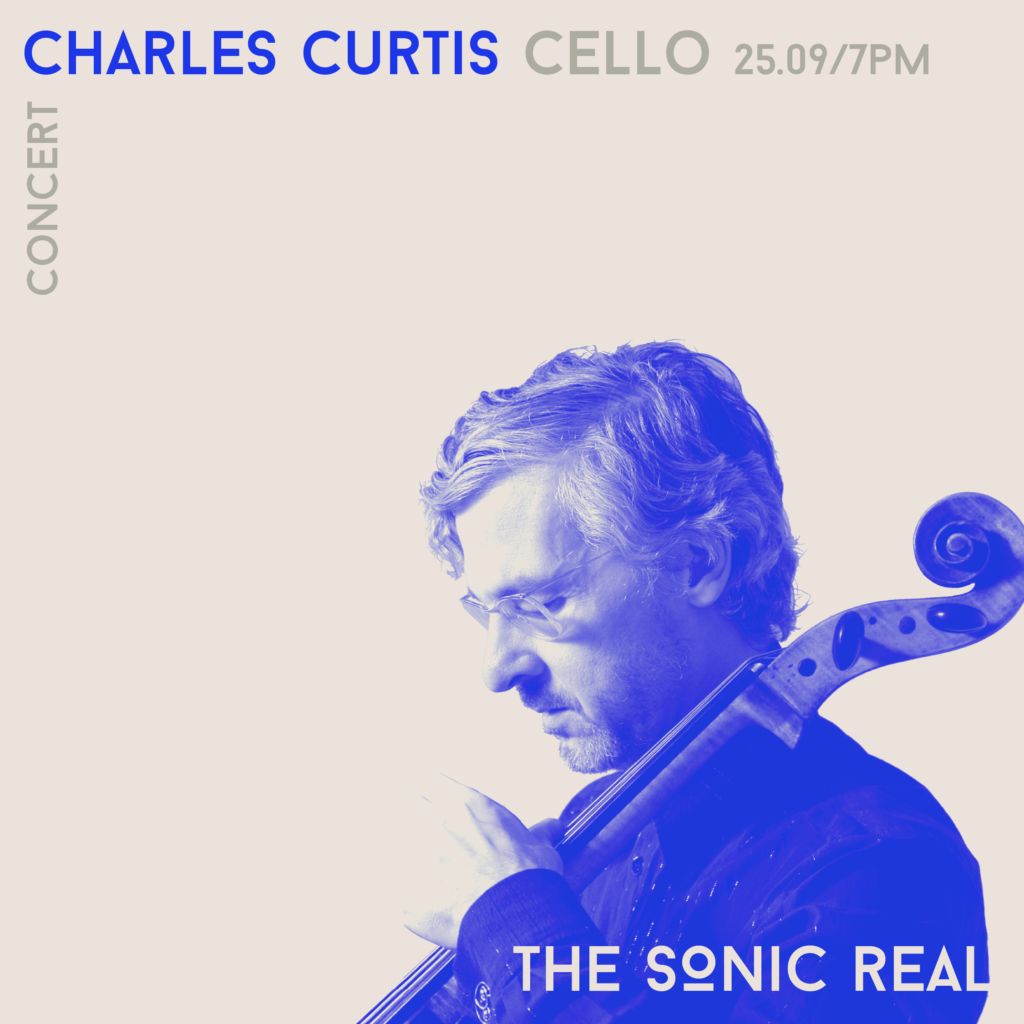
Graphics © Kathrin Scheidt

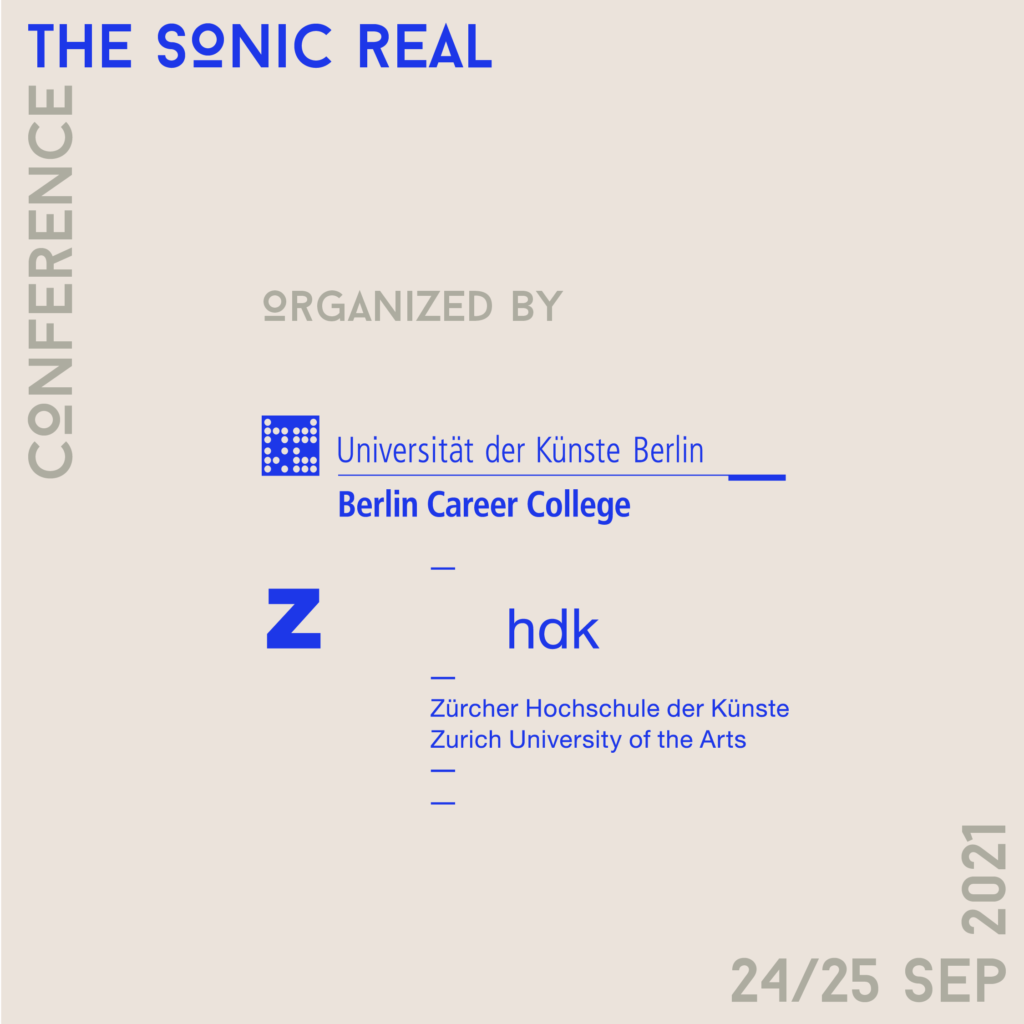
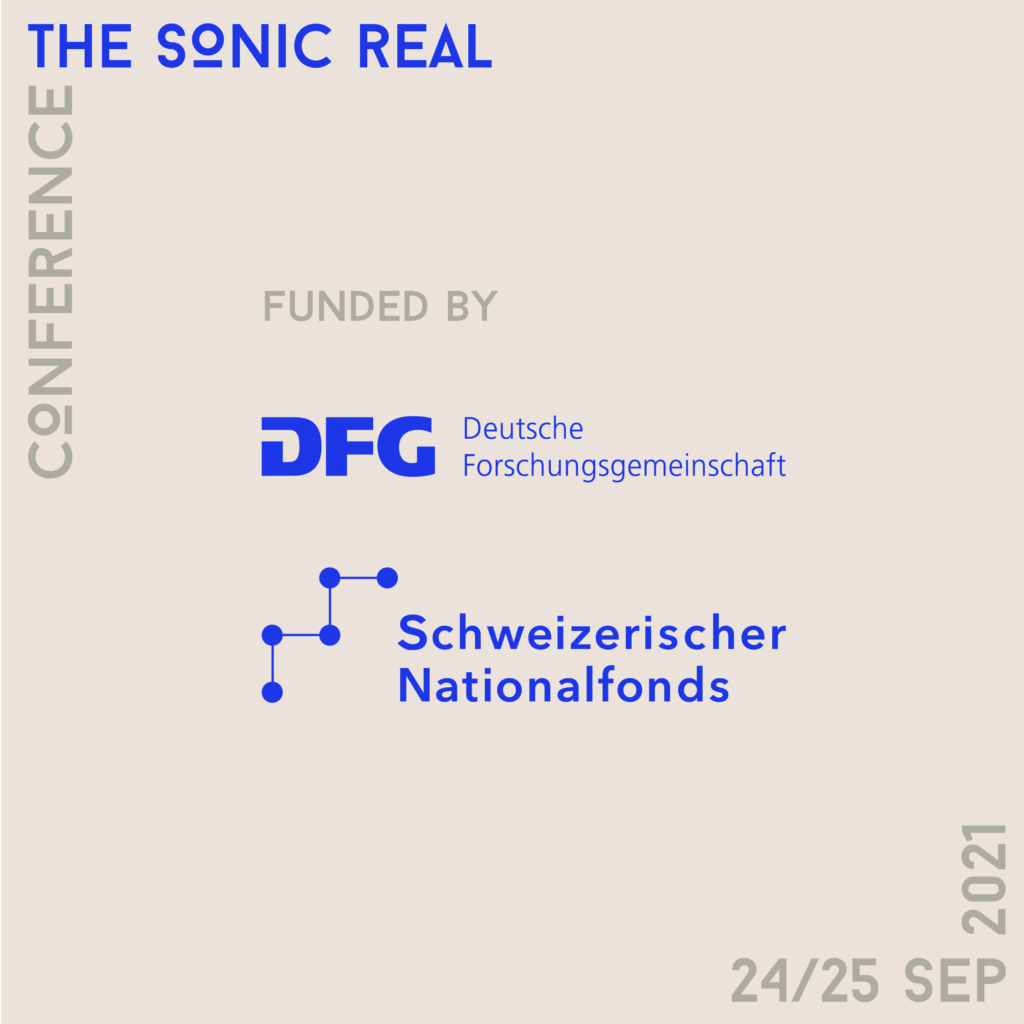
Graphics © Kathrin Scheidt
